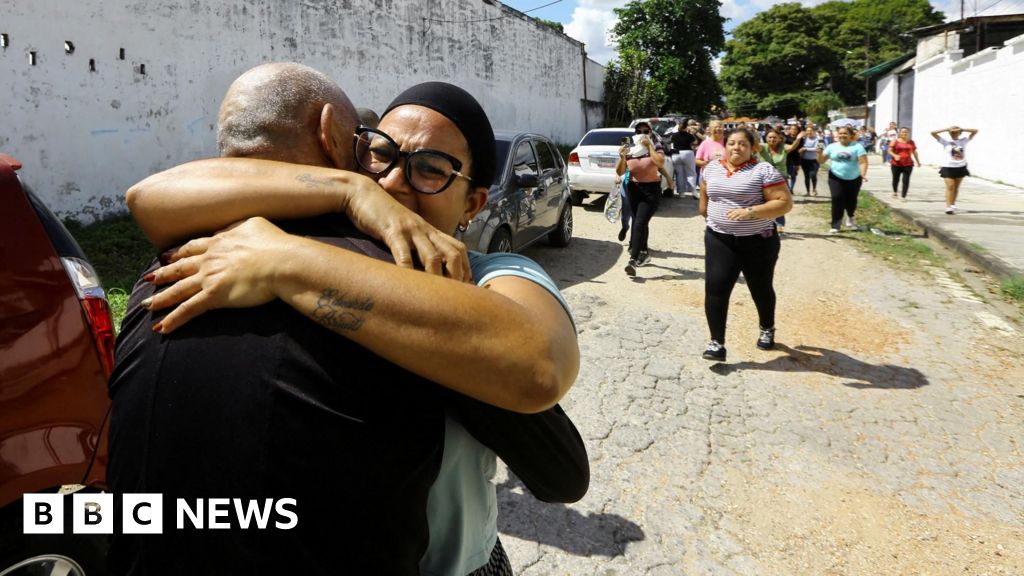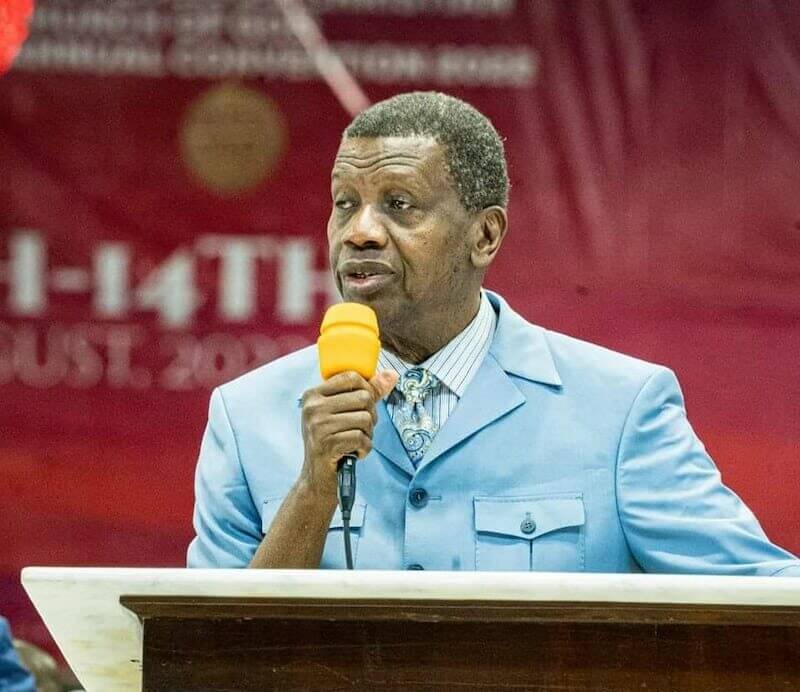In this feature, VICTOR AYENI explores the factors that may have contributed to lions attacking and killing their handlers, as well as how the country’s economic situation exacerbated the effective management of zoo facilities
As dusk settled on the Olusegun Obasanjo Presidential Library Wildlife Park in Abeokuta, Ogun State, on the evening of September 28, 2024, a tragic incident unfolded within the precincts of the zoo.
Saturday PUNCH learnt that the wildlife park officially opens daily from 9 am to 6 pm, but on this fateful day, some guests arrived when it was past its closing time.
A trained lion handler in the zoo, Babaji Daule, volunteered to guide the visiting guests and demonstrate the feeding routine of one of the male lions in its inner enclosure.
Unfortunately, the 35-year-old who hailed from Bauchi State reportedly neglected to secure the locks and barricade the lion’s enclosure before he came close to the cage.
As Daule approached the cage with food, the lion suddenly escaped and viciously mauled and inflicted fatal injuries on him.
The state Police Public Relations Officer, Omolola Odutola, in a statement issued on Sunday, confirmed that Daule tragically lost his life in the attack.
“It was discovered that the lion handler carelessly neglected to secure the locks and barricade the lion’s enclosure before approaching the cage to feed the animal. This negligence allowed the lion to escape and attack the handler, resulting in fatal injuries to the handler’s neck and eventual death.
“The victim’s body was removed and taken to the mortuary at Ijaye General Hospital, while the wild lion was shot to release its grip on the handler,” Odutola said.
Following the incident, the OOPL Wildlife Park management also issued a statement, in which it condoled with Daule’s family and narrated how the attack happened.
“The zookeeper, apparently feeling comfortable with the animal, left the safety protection gate open and proceeded to feed the animal. He was mauled by the animal and died on the spot.
“To prevent further mutilation of the body, the animal was put down immediately by personnel of the park,” the statement said.
The OOPL management, however, described the conduct of the zookeeper as below its standard feeding routine.
“It is important to state that this activity (by the zookeeper) fell completely out of the standard feeding routine of the park. Investigations have begun, and the matter has since been reported to the police for their investigation,” the statement added.
Inside the OOL park
Saturday PUNCH gathered that the OOPL wildlife park housed more than 140 indigenous and exotic animals which include lions, spotted and striped hyenas, pythons and several species of birds.
The wildlife park was opened to the public on Monday, November 2, 2017, and it has since attracted visits from zoo enthusiasts, tourists, researchers, and schoolchildren from across the country.
The park has two lions which were christened Aremu and Ade each of which were placed in large spaces demarcated by iron bars and gates.
According to the park’s website, “The wildlife park operates the Animal Adoption Programme, which is aimed at recruiting partners to support the park and provide money to help with the upkeep of the animals.”
A TikTok user, stephof.lagos, in a video posted on January 5, 2024, complained that one of the OOPL zoo lions looked malnourished and suggested it should be released back into the wild.
“Look at the lion. How will I pay to come and see this lion, all the way from Lagos?” the lady complained.
The caption adjoining the video clip read, “The lion looks malnourished and unwell. Make una free this lion abeg. The guy don get ulcer plus kwashiorkor join. No be by force to get zoo.”
However, another TikTok user, Sheedahluxe0, who commented on the video, wrote, “I feel this is an old video because I was there two weeks ago for a research project and the lion looks healthy. I have videos though.”
On his part, a wildlife enthusiast, Arojinle (@arojinle1) in a post shared on X.com on March 7, 2024, disclosed that he visited the OOPL to investigate the malnourished lion whose video circulated months earlier.
“I saw the lion and it’s not looking malnourished. It could get bigger than it is but the ribs aren’t showing. This made me confused as I knew the person who shared the video with me was sure.
“I was, however, lucky to see one of their workers who explained to me that the lion wasn’t feeling well and they’ve been treating it during the time the ‘malnourished’ video was made. This may be true and it may not be. However, I’m happy to see that it looks better today,” he wrote.
Another lion attack in OAU
On a similar note, a veterinary technologist, Olabode Olawuyi, who worked at the Obafemi Awolowo University, Ile-Ife, Osun State, was killed by a lion on February 19, 2024.
Olawuyi was reportedly feeding the nine-year-old wild animal at the institution’s zoological garden when he was mauled to death.
It was gathered that the deceased had been responsible for the care of the lion that attacked him and during the attack, efforts made by staff members to rescue him from the male lion failed.
“We never thought somebody would die like that in the line of duty. Bode Olawuyi was a veterinary technologist with more than two decades of experience.
“He had been in charge of the university botanical garden for more than a decade now and I must say that Bode had been taking care of these lions since the time they were born. They were born into his hands, so he has been tendering them for the past nine years.
“He was there to feed them as usual but we never knew what came over the male lion that it had to attack Mr Olawuyi that way,” the OAU’s Public Relations Officer, Abiodun Olanrewaju, said in a sad tone.
Olanrewaju explained that other members of staff tried everything they could to rescue Mr Olawuyi from the grip of this wild cat but their power couldn’t withstand the aggression of the male lion, so they had to call on the university’s security apparatus who came in with their weapons.
He said, “And when they too couldn’t do anything within their human powers, they had to euthanise the aggressive lion. The medical team got there and did everything they could.
“They administered first aid and other medical efforts to save Mr Olawuyi, but the wild cat had already inflicted severe fatalities on him. It’s a pity we lost him in the line of duty. The management has sent a delegation to the widow.”
Probe initiated
Olawuyi’s demise plunged the management, staff, students, and the entire campus of the OAU into mourning as netizens expressed concerns about the level of safety available in zoos across the country.
On March 7, the House of Representatives mandated its Committees on Safety Standards and University Education to investigate Olawuyi’s death.
This decision of the green chamber followed the adoption of a motion moved by a lawmaker representing Ife Federal Constituency, Abimbola Ajilesoro, during the plenary session.
Presenting the motion, Ajilesoro said, “This fatal incident could have been prevented if the zoo keeper had access to tranquillisers; he could have incapacitated the lion to save his life.”
The lawmaker also raised additional concerns about the lack of security and safety measures at some zoological sites across the country.
Ajilesoro further lamented that the hazard allowance for workers in these roles is inadequate as they put their lives at risk in service to their country.
“The National Orientation Agency should conduct sensitisation and awareness campaigns on the importance of the public or private entities, academic or commercial, keeping wild animals anywhere in the country to observe safety precautions and security measures,” he added.
Two other savage attacks
Checks by Saturday PUNCH revealed that there are 17 public and private zoos across the country. However, two other attacks have occurred in two other zoos in addition to those at the OOPL and the OAU Zoological Garden.
On February 3, 2018, a butcher at the Kaduna city’s Gamji Gate Park, Mustapha Adamu, was savagely attacked by a lion.
The butcher, who was responsible for supplying meat to the animals at the mini zoo commissioned by the state government in 2015, was rushed to the Barau Dikko Hospital in Kaduna’s emergency unit for treatment.
Unfortunately, Adamu succumbed to his injuries the next day, leaving behind a wife and six children.
Narrating the incident on his hospital bed before his death, Adamu said he had been feeding the lion for eight months but forgot to lock one of the doors after the animal was fed.
He said, “I think what happened was a mistake on my part because I was supposed to lock one of the doors after giving him meat but I forgot to do so. The lion now came out and grabbed me by the neck.
“It was my boss who screamed as he quickly threw another piece of meat into the lion’s cage that made it release me. In fact, even at that, the lion still tried to come back to attack me. I lost consciousness until they brought me to this hospital for treatment. I was very lucky, if not only God knows what would have happened.”
In September 2017, an attendant at the Agodi Zoological Gardens, Ibadan, Hamzat Oyekunle, was also attacked by a lion in the park.
Following the incident, the Oyo State Government ordered the immediate closure of the Agodi Zoo and the evacuation of its lions.
“One of the lions at the zoo had accidentally attacked one of the attendants, Mr Hamzat Oyekunle popularly known as Baba Olorunwa.
“Oyekunle was reported to have later died from injuries sustained from the incident. The incident is unfortunate as the deceased had fed the lions for over five years.
“He was known to have had a very good relationship with all the animals in the zoo. The state government’s representatives have visited the family of the deceased to commiserate with them,” a statement issued by the Executive Secretary, Bureau of Investment Promotion, Yinka Fatoki, disclosed.
Poor state of zoo animals
An Ife resident, Tomiwa Ogundare, told our correspondent that when he visited the OAU zoo last year, he was not impressed with the state of the animals there.
“When I visited the place and I saw how the animals there looked, I wondered why would anyone keep animals and not properly take care of them. I think they should just release them rather than subject them to hunger.
“The lions were so skinny that I thought they would pass out if they roared. They looked weak the day I visited there, they just lay there. I think the management of OAU or those in charge of the zoo maintenance should look into this,” Ogundare noted.
Also speaking with our correspondent, a postgraduate student of the University of Ibadan who gave his name simply as Abraham, lamented the state of the institution’s zoo.
“The zoo used to have animals like lions and gorillas, but they are dead. That elephant died sometime in 2022. The last time I visited, the chimpanzees too looked malnourished but some of the other animals still looked okay at least, fed and active.
“I think the zoo isn’t well managed and it’s the Nigeria factor or management issues at play,” he stated.
Commenting on the incidents of lions that killed zookeepers, Ogun State-based zoologist, Oluwafemi Ajose, blamed poor feeding and low maintenance of zoological gardens.
Ajose explained, “Why are Nigerian zoo keepers being killed by their animals? This leads me to one more question, why are those animals not being fed well? Some of these animals are pets in some homes in the Arab countryside and there are no threats from these animals, especially this big cat.
“The first problem is that of inadequate budgetary allocation. The resources allocated to most of these zoos are meagre and there is a big problem of poor maintenance.
“Part of the setbacks that have befallen zoos is the economic situation where most people will prefer to use their money to eat than to visit the zoos and that results in low revenue. There are also reports of illegal killing of wildlife which has made the sustenance of zoological gardens in Nigeria a huge challenge.”
Wild animal escapes
Aside from grisly lion attacks on zookeepers and attendants, there were also reports of wild animals escaping from some zoos and posing potential dangers to citizens.
After a massive flood hit Borno State last month, officials of a zoo confirmed that some wild animals had escaped from captivity.
In one of the videos which later emerged on social media, some of the creatures could be seen roaming the streets of the state capital, Maiduguri.
A zookeeper at Sanda Kyarimi Zoo, Ali Donbest, disclosed he did not know exactly how many animals are free but a hunt is on to locate them.
“We’ve been able to recapture the ostrich seen on the street and we also got a call that a crocodile had been found in another location but we cannot get there due to the floods.
“We got a report that a hippo was seen somewhere and we don’t have hippos in the zoo, so the waters might also disperse animals from other locations too,” he told BBC.
Similarly, in October 2019 there was widespread panic among residents of Kano State and its environs when a lion escaped from its cage at a zoo in the state.
After several hours of frantic search, the head of the zoological garden, Sai’du Gwarzo, confirmed that the lion was found inside the zoo premises.
It was, however, found in a cage belonging to goats. The lion had killed and eaten all the goats in the cage, he said.
“The rangers had succeeded in locking up the cage before the lion was shot with an injection which made him less harmful before it was captured and returned to its cage,” Mr Gwarzo said.
On December 2, 2015, a four-year-old lion was shot dead after it escaped from the Jos Wildlife Park during its feeding time in the morning.
There was reportedly widespread tension in Jos as police and soldiers spent the day trying to track the animal down.
The police say the lion was hostile during attempts to get it back to the cage and it was killed before it could harm anyone. However, critics argued that the animal should have been tranquilised instead.
Experts react
Reacting to reports of lion-related incidents, an educationist and author at Edugist, Mr Alao Akeem, explained that while zoos aim to provide a controlled and safe environment for animals and staff, the unpredictable nature of these wild animals can lead to devastating incidents.
“Firstly, it’s essential to acknowledge that lions are apex predators with powerful instincts. Despite being in captivity, these animals retain their wild nature, and their behaviour can be influenced by factors such as stress, territorial instincts, or perceived threats.
“Zoos strive to create environments that mimic natural habitats, but challenges arise when trying to balance the well-being of the animals with the safety of their caretakers.
“Zookeepers often build close relationships with the animals they care for, but even with years of experience, unforeseen circumstances can trigger aggressive behaviour. Factors like changes in routine, health issues, or even external stimuli may lead to unpredictable reactions from the lions. Maintaining a balance between routine care and minimising stressors is crucial in preventing such tragic incidents,” Akeem advised.
A wildlife researcher, Babajide Ayobami, in an interview with Saturday PUNCH, pointed out that lions belong to the family Felidae and as such, should be housed singly due to their aggressive nature.
“No matter the size of the species, zoo owners and keepers must take extreme caution when designing lion cages because of the violent attitude and physical prowess of these animals. Their cages should be designed in such a way that would ensure that the animals cannot escape or reach into other cages or public areas.
“Additionally, care should be taken when interacting with otherwise ‘tame’ lions. Minimum cage dimensions for single animals should equal at least 200 square feet, and be increased by 50 per cent for each additional animal.”
In another interview with Saturday PUNCH in February, a Professor of Zoology at the University of Ibadan, Alexander Odaibo, explained that handlers of wild animals need to be properly trained to understand the behaviour of every animal.
He explained, “Apart from training, one has to be very careful and pay attention to details in all they have to do. At times, there could be human error. For example, not locking the gate when it is supposed to be locked. Also, there are procedures for feeding animals, and if those laid down procedures are not properly followed, then accidents can occur.
“These are wild animals and no matter how much one tries to take care of them, one can never convert them to domestic animals. They’ll remain wild animals, and as such, when the opportunity arises for them to attack either an enemy or to attack for food, these animals will go for it.
“Those are the things involved in taking care of wild animals. So in summary, one has to be very careful, pay attention to details, and follow the laid down procedures for approaching such animals for feeding purposes or other reasons. Every zoo has a procedure, depending on what kind of cage it has or the kind of exhibition system that has been put in place.”
Don laments poor feeding
On his part, a Professor at the Department of Wildlife and Ecotourism Management, University of Ibadan, Lameed Gbolagade, lamented that due to the situation of the country, zoological gardens and other places of tourism have been adversely affected.
The don added that many zoological gardens could not afford to feed their animals, pay the salaries and emoluments of their workers and meet other necessities.
Gbolagade added, “The money accruable from ticketing has been grossly reduced. Consequently, many animals are being starved or deprived of necessities. We have the University of Ibadan Zoological Garden, University of Ilorin Zoological Garden, FUNAAB Zoo and Obasanjo Library Zoo, among others.
“However, many zoological gardens, such as Agodi Gardens and some others, have folded up due to reasons bordering on financial incapability as well as manpower and institutional-based problems. Others have ceased to exist due to low patronage as well as a lack of good and healthy species that can be displayed in the zoo.
“However, new zoos are coming up, either from individuals or institutions, depending on conservation interest and ability to manage the species of animals in captivity.”

 1 month ago
49
1 month ago
49















 English (US) ·
English (US) ·